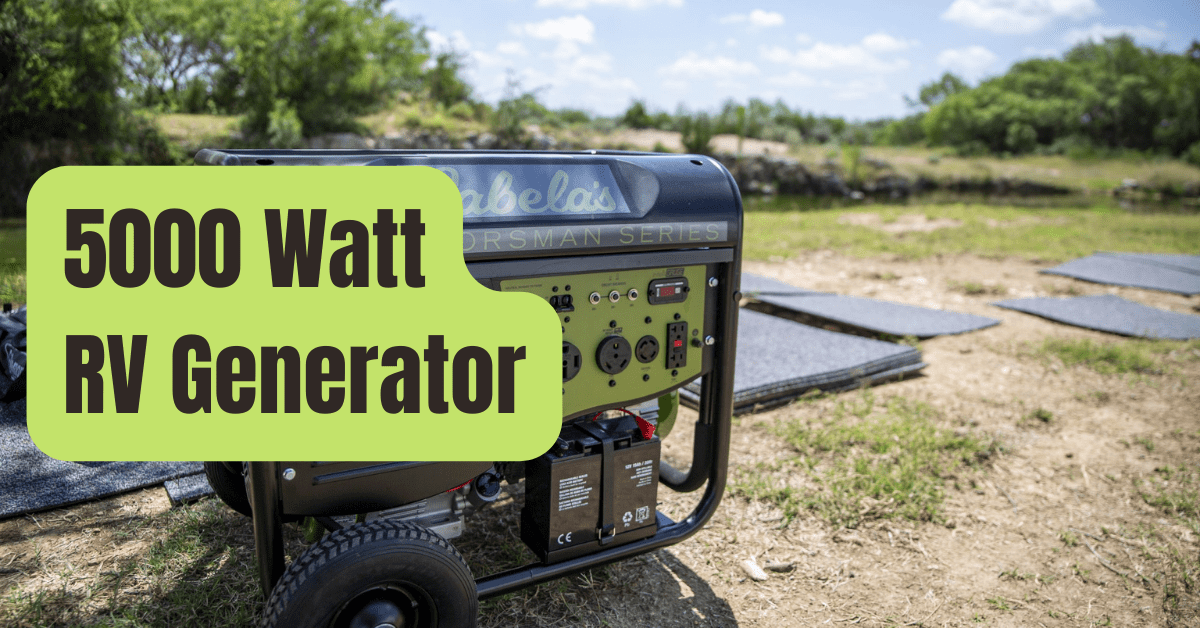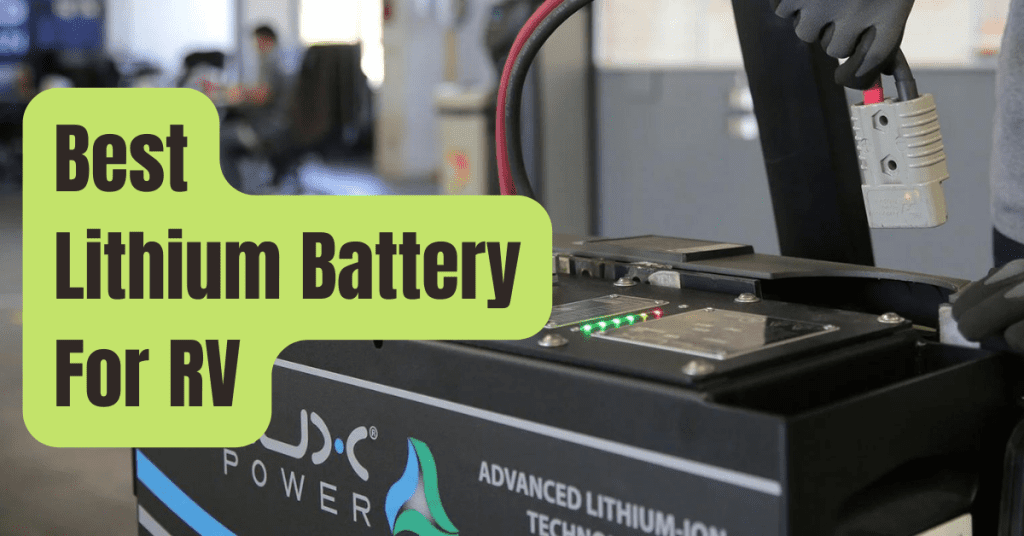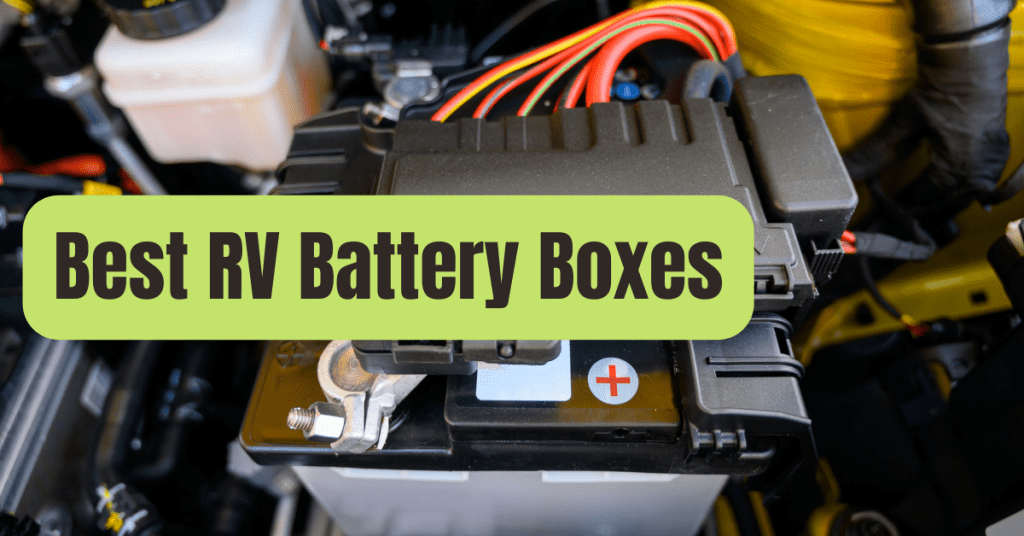People are taking preparation more seriously than they have in the past.
Preppers are no longer the only ones who have food on hand and have contingency plans in place in the event of a disaster.
Natural catastrophes have always been able to leave hundreds or even thousands without electricity for days or weeks at a time, and blackouts have been very regular in certain locations.
In the event of a power outage, a 5000-watt generator may keep your needs running.
These appliances, which range from freezers to air conditioners, will keep your life moving even if the rest of the world appears to be standing still.
They’re not only for emergencies, however.
These devices have long been used by construction teams to deliver electricity where it is needed for operating equipment and other gadgets.
When it came time to replace our old generator, we thought it would be a good opportunity to put some of the most popular types to the test and discover which ones were the best.
The eight reviews that follow will reveal what we’ve discovered so that you may benefit from our research as well.
A Comparison of Our Favorites in a Hurry
Reviews 2026: The 8 Best 5000-Watt Portable Generators
#1. Pulsar PG5250B Dual Fuel Portable Generator – Best Overall

Whether you’re using your generator for emergency purposes or as a backup power source for an RV or a construction site, adaptability is key.
You can no longer rely on gasoline to power your generator with the Pulsar PG5250B.
Instead, it can operate on either propane or gasoline, giving you additional alternatives when you need them.
Other generators have this feature, but not the Pulsar’s Switch & Go technology, which allows you to switch fuel sources without shutting down the generator.
A gas pipe is, thankfully, supplied.
Receptacles for normal 120V AC, 30-amp RV, and 120/240V twist-lock are available on this generator.
Although there are just two 120V plugs, you may use a power strip to add extra outlets as required.
At 50 percent load, a 4-gallon tank of fuel will provide you around 12 hours of runtime.
You’ll only be restricted by the capacity of your propane tank when using liquid propane gas, albeit you won’t receive as much power (LPG).
On LPG, you’ll receive 4,750 peak and 3,850 running watts, however on gas, you’ll get 5,250 peak and 4,250 running watts.
Overall, this is the finest portable 5000 watt generator available this year.
Pros
- Can be used with either propane or gasoline.
- 4-stroke 224cc engine
- On gasoline, a 12-hour runtime is possible.
- There are 120V, 240V, and 30-amp RV outlets available.
- Switch & Go fuel technology is a kind of fuel that can be switched on and off
- A hose is supplied for connecting a gas tank.
Cons
- Only one handle is available for pulling.
- Only two 120V outlets are available.
#2. Green-Power America GPD5000W Gasoline Generator – Best Value

Generators may be rather costly, however there are some significant price disparities across types.
Take, for example, Green-Power America’s GPD5000W.
It has a full 5,000 beginning watts and is less than half the price of comparable variants.
Unfortunately, only 3,850 operating watts are available, but this should be plenty to power most household gadgets.
The absence of 240V connection is one disadvantage of this less expensive variant.
You do, however, receive 12V and 120V outlets, as well as a 120V twist-lock outlet.
Even though it’s a touch bigger at 26″ x 24″ x 22″, this machine is substantially lighter than the competitors at 109 pounds.
Thankfully, it comes with two fold-down handles that make it simple to drag to your desired location.
A full tank, which is 4 gallons, can provide you roughly 11 hours of operation while running at 50% load.
In our experience, she starts up quickly and has never caused us to be concerned.
We believe this is one of the finest 5,000-watt portable generators for the money, owing to its low price and reliable performance.
Pros
- 7.5 HP is produced by a 223cc engine.
- It only weighs 109 pounds.
- Reasonably priced
- From 4 gallons at 50% load, an 11-hour run duration is possible.
- 2 collapsible handles for simpler carrying
Cons
- Only 3,850 watts of continuous power
- There are no 240V outlets.
- Other versions have a larger footprint than this one.
#3. Generac 5939 Portable Generator – Premium Choice

The Generac 5939 Portable Generator’s motor has a lot higher displacement than the motors in most of the other 5,000-watt generators we’ve examined, at 389cc.
This is how it achieves a starting wattage of 6,875 and a continuous operating wattage of 5,500.
This is more than enough power to operate this machine’s 120V and 240V outputs.
With a larger engine, this machine is naturally larger and heavier than comparable models.
Its dimensions are 29″ x 27″ x 25,” making it a few inches bigger in every direction than conventional 5,000-watt generators.
While most of these generators only have two 120V outlets, this one has four 120V outlets as well as a 120V/240V outlet for bigger items.
However, you won’t obtain the same fuel efficiency as smaller machines.
The tank on this generator contains 7.2 gallons of gas, however a full tank will only allow you 10 hours of runtime at 50% load.
Fortunately, all of the outlets are protected from the elements by being covered.
You’ll also receive a digital hour meter, low oil shutdown, and circuit breakers on each pair of outlets, among other things.
Pros
- More power is available with the 389cc engine.
- Receptacles with lids
- 120V and 240V outlets are available.
- There are four 120V outlets in total.
- It has a starting wattage of 6,875 watts.
Cons
- Other 5,000W generators are larger and heavier.
- On just 7 gallons of gasoline, the vehicle can operate for 10 hours.
#4. A-iPower AP5000V Portable Generator

The AP5000V’s 208cc engine isn’t as powerful as some of the other models we tried.
It has a peak power of 5,000 watts and an operating power of 4,000 watts.
Although not the most powerful, it is enough for a variety of equipment and appliances.
It is, however, a little quieter than previous versions, with a noise level of 68 decibels at 75 percent load and 58 decibels at 50 percent load.
This is far quieter than some of the other devices we tried.
This machine also has good fuel efficiency, delivering 12 hours of runtime on four gallons of petrol at 50% load.
Even with the lesser engine, you’ll still have 120V and 240V connections, so you’re not losing anything.
It’s also one of the lightest alternatives, weighing in at 109 pounds.
It’s also smaller than previous versions, measuring 24″ x 18″ x 20″.
However, we would want to see a little greater general connectedness.
This gadget only has three outlets in total, two of which are conventional 120V outlets.
There is also just one handle to assist in the pulling of this machine.
It would be much simpler to carry if there was a second handle.
Pros
- On 4 gallons of gas, the vehicle can operate for 12 hours.
- At 75 percent load, the noise level is just 68 dB.
- At 50% load, the noise level is 58 dB.
- There are 120V and 240V outlets available, as well as an RV outlet.
- It only weighs 109 pounds.
Cons
- There are just two 120V outlets available.
- There is just one handle to assist in pulling it.
#5. WEN 56475 Portable Generator

The WEN 56475 portable generator is reasonably priced but somewhat underpowered, with 3,750 operating watts and 4,750 starting watts.
Except for anything that needs 240V energy, it will still operate most of your appliances.
Even with the lesser power output, at 50% load, this system only lasts 10 hours.
Still, there’s a lot to enjoy here.
This machine, for example, complies with CARB and EPA regulations in all 50 states, including California.
With a keyless, electronic push-button start that gets it up and going immediately, it’s also simpler to start than many versions.
There are two normal 120V outlets, a twist-lock 120V, and a 30-amp RV receptacle for connection.
Automatic voltage control protects your gadgets from voltage spikes, and low-oil shutdown prevents the generator from functioning when the oil level falls below a certain level.
Pros
- All 50 states are CARB and EPA compliant.
- Push-button start with no keys
- Shutdown due to low oil levels
- Voltage regulator that works automatically
- 2 collapsible handles for simpler carrying
Cons
- Only 3,750 watts of continuous power
- There are no 240V outlets.
- At 50% load, the battery lasts just 10 hours.
#6. DuroMax XP5500EH Fuel Portable Generator

The DuroMax XP5500EH is dual-fuel capable, meaning it can operate on either propane or gasoline.
Unfortunately, there is no propane pipe supplied, and switching between fuel sources isn’t as simple as it is with other machines we’ve tried.
Still, when you need it, it’s a handy function to have.
This machine has 120V and 240V outlets that may both be used at the same time.
However, there is no 30-amp RV plug, which seems to be a serious error considering that RVs often utilize generators for electricity while boondocking.
When turned on, this generator emits just 69 decibels of noise, which is rather low in comparison to other types.
This is a somewhat heavy machine, weighing in at 127 pounds, albeit it isn’t the heaviest.
It is, however, rather little, measuring 24″ x 17″ x 17″.
With a gasoline tank that carries just under four gallons, you’ll receive 5,500 starting watts and 4,500 operating watts.
Pros
- Hybrid design with two fuels
- Operating loudness of 69 decibels
- Runs on both 120V and 240V at the same time
- Dimensions are small.
Cons
- 127 pounds is a substantial amount of weight.
- A propane pipe is not included.
- There is no 30-amp RV outlet.
#7. Champion 100496 Portable Generator

With 6,250 starting watts and 5,000 running watts, the Champion 100496 is far from underpowered.
It has enough power to power four 120V outlets and a 240V receptacle, all of which are protected from the elements by being covered.
Volt Guard also protects plugged-in electronics from voltage surges.
This is one of the heaviest versions we examined, weighing 150 pounds, and the one handle doesn’t make it any simpler to move.
It’s also one of the most costly versions we’ve tested, however we don’t believe the price is justified.
This machine’s fuel economy isn’t fantastic.
The petrol tank is approximately 6 gallons, yet a full tank will only allow you 9 hours of running at half load.
At the very least, everything is covered by a 3-year guarantee, which is our favorite feature of this generator.
Pros
- 6,250 starting watts and 5,000 running watts
- Warranty period: 3 years
- Volt Guard prevents equipment from being damaged by voltage spikes.
- 120V and 240V outlets with covers
Cons
- Inefficient use of fuel
- At 150 pounds, I’m a big guy.
- Pricier than other alternatives
#8. Durostar DS5500EH Portable Generator

This generator is one of the quietest generators we evaluated, with an operating level of 69 decibels.
It has adequate connection with 12V, 120V, and 240V outlets, albeit there are only two 120V outlets.
This machine has a starting power of 5,500 watts and a running power of 4,500 watts in a package that’s a little bigger than other machines we’ve seen.
It’s a full 5 inches broader and higher than previous versions, measuring 25″ x 22″ x 22″.
This generator has the advantage of being able to operate on either propane or gas.
Unfortunately, there is no gas pipe included, thus you will need to purchase one independently.
This machine had an electric “rocker start,” however the battery died after a few months, rendering the function unusable.
Pros
- Running loudness of 69 decibels
- 12V, 120V, and 240V outlets are available.
- The dual-fuel design may be used with either gas or propane.
Cons
- Other 5,000W generators have a larger footprint.
- Only two 120V outlets are available.
- The propane pipe is not included.
- After a few months of sitting, the starter battery failed.
Buyer’s Guide: Choosing the Best Portable 5000 Watt Generator
It might be tough to narrow down all of the options and be positive that you’re getting the proper one unless you’ve spent hours researching specifications on comparable generators.
This buyer’s guide was prepared for you if you’re still undecided about which model to purchase.
#1. Selecting the Best Generator
While they all do the same task of powering appliances and devices when there is no electricity, the variances between them might make each type more or less suitable for particular scenarios.
You don’t want to buy a generator for a certain purpose just to discover that it won’t meet your expectations.
To make sure this doesn’t happen to you, we’ll go through the most critical characteristics to look for when purchasing a new 5,000-watt generator.
Determine which of these is most critical for your unique requirements, and then seek out the machine that best meets those criteria.
#2. Running Watts vs. Starting Watts
A generator’s power output is measured in watts.
The motors on various generators may be different sizes and horsepower levels, but the most crucial parameter to check for is watts, since this will define what you can power with the generator.
5,000 watts signifies something different on each model, even though they are all 5,000 watt generators.
Some models are called by their peak wattage, while others are named for their running wattage.
Despite the fact that these measures seem similar, they are significantly different.
Peak watts, also known as beginning watts, are the highest wattage a generator can generate for brief periods of time.
They won’t be able to sustain this level of production for long, but they can spike output to equal it for a short time.
This is required because appliances, power tools, and other devices sometimes need considerably more power to start than they do to operate.
That is why a generator’s operating watts are lower.
Running watts are the maximum wattage a generator can produce for a prolonged length of time.
This is the number you’ll be counting on the most.
However, if you don’t have enough beginning watts to start a big device, the available running watts won’t make much of a difference.
#3. Versatility
Generators are used as a backup in the event that there is no power and no other option.
As a result, they have a wide range of applications.
This refers to the capacity to utilize a variety of fuels.
What happens if there isn’t any gas left? What if the power outage lasts longer than planned, and the few gallons of water on hand aren’t enough?
Some generators solve this problem by enabling several fuels to be used.
Most of the time, this implies they’ll operate on gas or liquid propane, both of which are common household items.
If you don’t have it, many local gas stations, hardware shops, and even supermarket stores have it.
Our top dual-fuel generators also allow for smooth switching between fuel sources, so you don’t even have to flip the dial.
However, you should be aware that while using propane, most dual-fuel devices have less power.

#4. Dimensions and Weight
If your generator is just going to be used as a backup for your house, size and weight aren’t as crucial to consider.
However, if you’re utilizing a generator for a construction team or transporting it in an RV, these characteristics will be far more important.
There are some significant size differences even among generators of equivalent power.
Even though the power output is identical, some versions are several inches bigger in each direction and might weigh almost twice as much as other variants.
If size and weight are crucial to you, you’ll want to hunt for a smaller, lighter version.
#5. Efficacy of Fuel
Although you may have many gallons of gasoline on hand, do you know how long an emergency will last? Alternatively, if you utilize a generator to power a work site, fuel efficiency might save you a lot of money in the long run.
Hours of runtime are used to calculate fuel efficiency.
However, you must also consider the tank’s size.
It’s amazing to get 12 hours of runtime from a 4-gallon tank, but it’s not the same if you get 12 hours from a 7-gallon tank.
Conclusion
On the market, there are several excellent 5,000-watt generators.
Unfortunately, this is what makes choosing between them so difficult! Fortunately, we were able to put them to the test side by side for a fair comparison.
You’ve already read about each of these models in our evaluations, but to refresh your memory, we’ll briefly recap our suggestions once again.
Overall, the Pulsar PG5250B was our favorite.
It has unrivaled adaptability thanks to Switch & Go fuel technology, which lets you to switch between gas and propane without turning the machine off, and it even comes with a propane hose.
The Green-Power America GPD5000W delivers 12V and 120V outlets at a very low price, making it a more economical machine to help you through an emergency.
It is substantially lighter than rival versions, weighing just 109 pounds and providing 11 hours of operation on 4 gallons of petrol.
Do you need greater power? We propose the Generac 5939 portable generator, which has a powerful 389cc engine and a starting power of 6875 watts.
For simpler portability, you’ll also receive 120V and 240V covered receptacles with folding handles and never-flat wheels.















